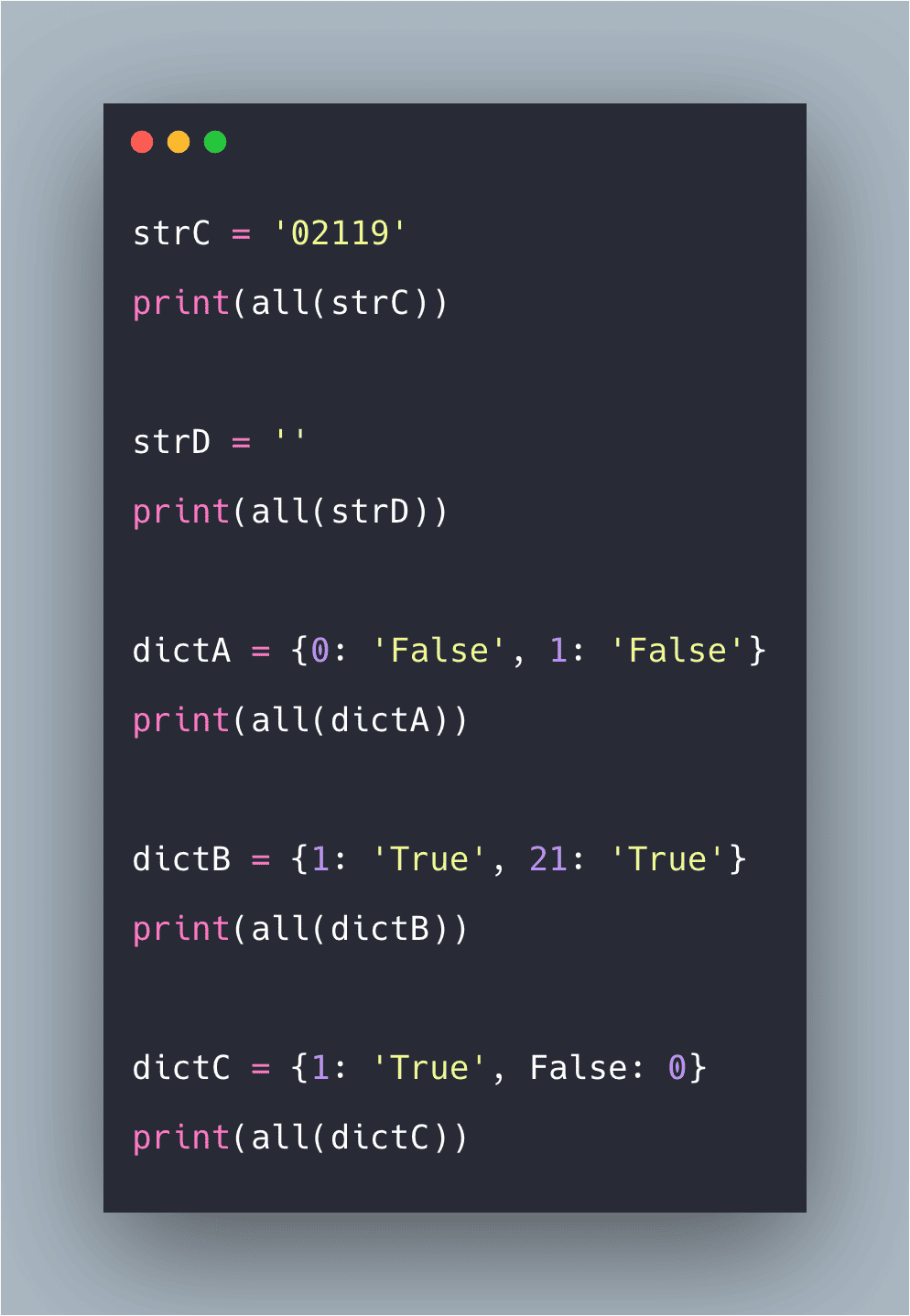Python all() is an inbuilt function Example that returns True when all items in the given iterable are true, otherwise, it returns False. If the iterable object is empty, the all() function also returns True.
Python all() Function
The all() method returns:
- True – If all elements in an iterable are true
- False – If any element in an iterable is false
See the following syntax.
all(iterable)
The all() method takes a single parameter. An iterable parameter is an object which can be list, tuple, or dictionary.
The all() method returns:
- True – If all the items in an iterable are True.
- False – If any item in an iterable is False.
#python #python all #iterable

2.90 GEEK